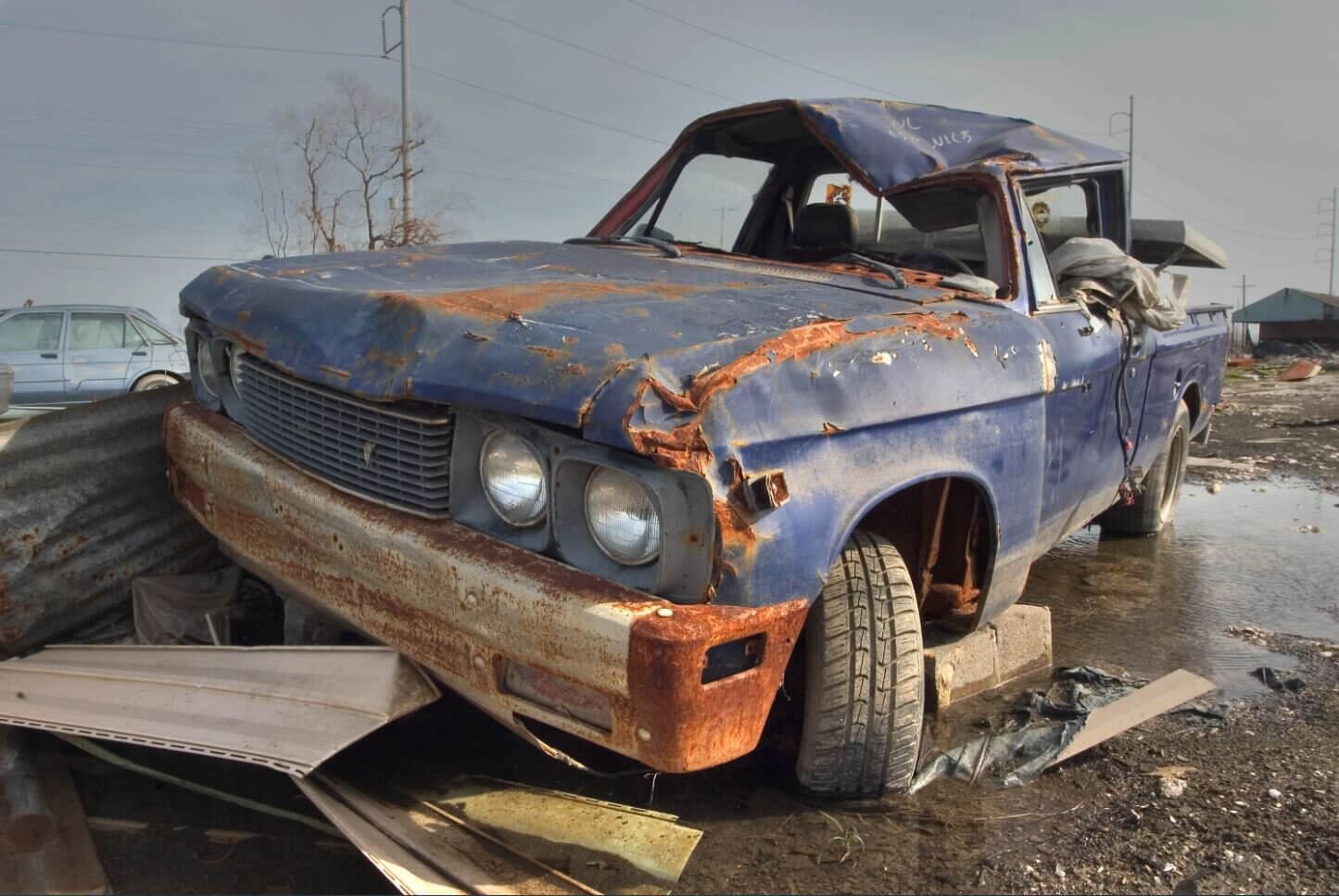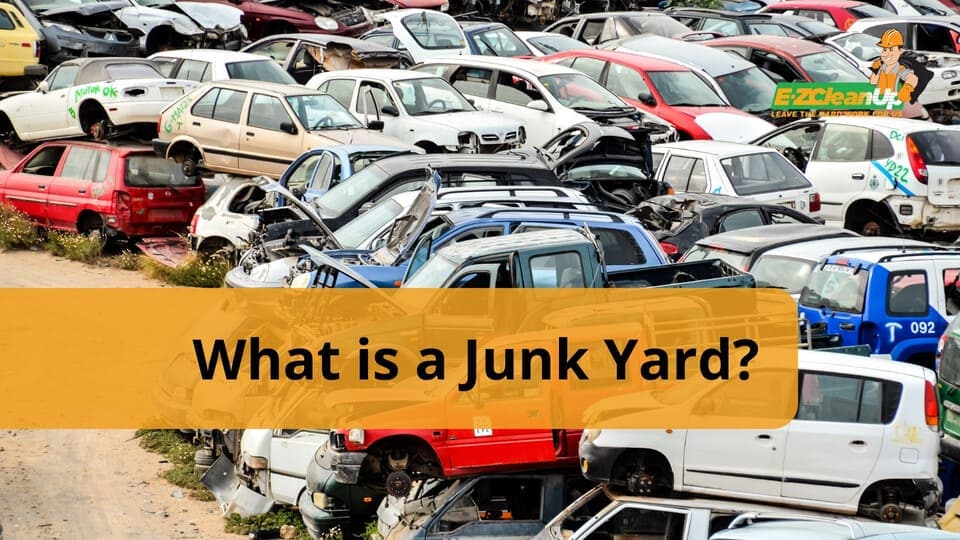The Environmental and financial Benefits of Reusing Junk Autos
Reusing scrap cars provides countless financial and ecological advantages that extend well past waste reduction. By redeeming as much as 90% of automobile parts, this technique considerably lessens landfill concern while preserving essential natural deposits. It reduces down on energy usage and greenhouse gas exhausts linked to raw product extraction and production. The process likewise creates employment possibility across various industries, from dismantling to logistics, and supplies customers with economical automobile components. These benefits highlight the multifaceted value of recycling scrap vehicles, yet there are additionally facets to take into consideration when examining its complete effect.
Decreasing Land Fill Waste
Lowering land fill waste via the recycling of scrap cars and trucks plays a pivotal function in environmental conservation. When automobiles reach the end of their life process, efficient recycling procedures can dramatically reduce the volume of waste that winds up in landfills. Scrap cars and trucks, if not properly reused, add to the expanding trouble of garbage dump overcapacity, exacerbating ecological destruction and possibly infecting soil and groundwater with hazardous substances such as oil, gas, and heavy steels.

In addition, the reusing procedure mitigates the unfavorable effects of vehicle waste on biodiversity. Landfills are well-known for interrupting neighborhood ecosystems, and decreasing the increase of scrap vehicles aids maintain natural habitats. Eventually, reusing junk cars and trucks is a tactical method that fosters lasting waste administration, aligning with more comprehensive ecological objectives.
Conserving Natural Resources
In addition to mitigating landfill overcapacity, recycling scrap cars and trucks plays a significant role in preserving natural resources. By recycling junk automobiles, we substantially lower the need for raw products, thereby curbing the ecological destruction linked with mining tasks.
Furthermore, the procedure of recycling automobile parts such as light weight aluminum, copper, and lead is much much less energy-intensive than generating these products from virgin sources. This energy financial savings translates straight into reduced nonrenewable fuel source usage and lower carbon impacts (cash for cars denver). Furthermore, by reclaiming and repurposing products, we expand the lifecycle of non-renewable resources, ensuring they continue to be offered for future use
Furthermore, recycling vehicle fluids like antifreeze, oil, and transmission fluid protects against harmful compounds from infecting dirt and water sources. Through systematic reusing efforts, these liquids can be detoxified and recycled, advertising a circular economic situation and additional diminishing the strain on natural deposits. Thus, recycling junk automobiles provides a multifaceted approach to preserving our earth's invaluable natural possessions.
Creating Work Opportunities
The recycling of junk cars and trucks not only benefits the environment but additionally stimulates financial development by producing task possibilities. This growing industry offers a large range of work prospects, varying from the initial collection and transportation of old cars to the elaborate procedures of taking apart, arranging, and repurposing the various elements.

The proliferation of reusing plants even more magnifies the task market, demanding functions such as engineers, device operators, and top quality control professionals to make sure and manage the advanced equipment conformity with environmental regulations. Even management settings, such as sales, advertising, and customer service, see a surge as the market broadens.
Decreasing Production Expenses
By including recycled products from scrap cars, makers can dramatically decrease production expenses. The use of recycled steel, light weight aluminum, and various other useful metals minimizes the demand for basic material extraction, which is both pricey and energy-intensive. This not only preserves natural deposits yet likewise translates right into considerable price savings for automobile suppliers. The energy required to process recycled materials is significantly less than that required to generate brand-new materials from scrape. As a result, this reduction in energy usage straight correlates with reduced manufacturing expenditures.
Moreover, the recycling procedure aids improve the supply chain by supplying a constant influx of materials that are easily offered and commonly less expensive than freshly extracted sources. These cost performances are especially crucial in a highly competitive market like automotive manufacturing, where margins can be razor-thin. In addition, the recycling of scrap cars helps minimize the volatile pricing of raw materials, allowing suppliers to much better projection and manage their manufacturing budget plans.
Supplying Affordable Automobile Components
When junk cars and trucks are recycled, the schedule of economical vehicle components substantially enhances, benefiting both customers and service center. Recycled auto components are often sold at a portion of the expense of repairs, offering a cost-efficient option for lorry proprietors and technicians. This cost can be important for people that may not have the financial means to buy brand-new elements, allowing them to preserve their lorries in safe and operational condition.
Service centers additionally gain from this enhanced accessibility of budget friendly components. By sourcing recycled elements, these businesses can decrease their operational expenses, which can be passed on to consumers with reduced service fee. This, subsequently, can lead to greater client complete satisfaction and loyalty, as Related Site clients value the cost savings without endangering on quality.
Furthermore, the top quality of recycled components has actually enhanced significantly over the years, thanks to innovations in recycling procedures and high quality control steps. Several recycled parts undergo extensive screening to ensure they satisfy industry standards, providing dependability comparable to repairs - colorado springs we buy junk cars. By giving a economically viable and top notch choice, the recycling of scrap autos plays a crucial role in sustaining both the auto repair market and the wider customer market
Verdict
Recycling junk vehicles provides significant financial and environmental benefits by substantially lowering landfill waste and saving natural deposits. This method reduces manufacturing costs by recovering approximately 90% of lorry elements, hence reducing power intake and greenhouse gas exhausts. Furthermore, it creates employment chances throughout numerous fields and products budget-friendly automobile parts, strengthening the automobile repair service market. On the whole, the recycling of scrap cars supports both economic development and sustainability objectives.
Reusing junk autos offers various economic and environmental advantages that expand well beyond waste reduction. Scrap autos, if not properly reused, contribute to the growing trouble of landfill overcapacity, intensifying ecological degradation and potentially contaminating soil and groundwater with hazardous materials such as oil, gas, and hefty steels.
By recycling junk autos, we substantially decrease the need for raw materials, therefore curbing the environmental degradation linked with mining tasks.When scrap autos are reused, the availability of inexpensive automobile parts dramatically increases, benefiting both consumers and repair service shops.Reusing junk cars and trucks provides substantial financial and ecological benefits by substantially lowering land fill waste and saving all-natural sources.